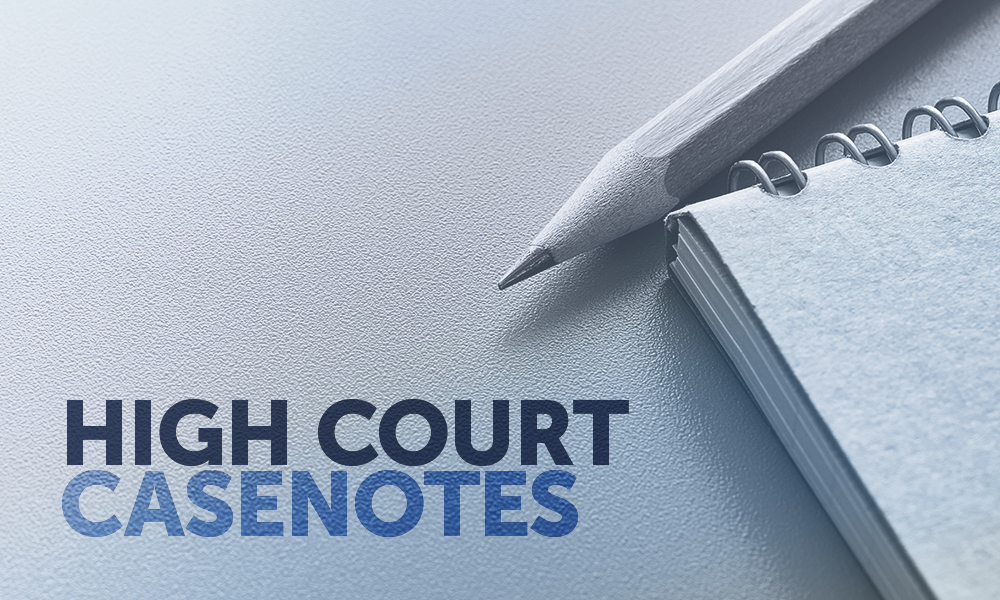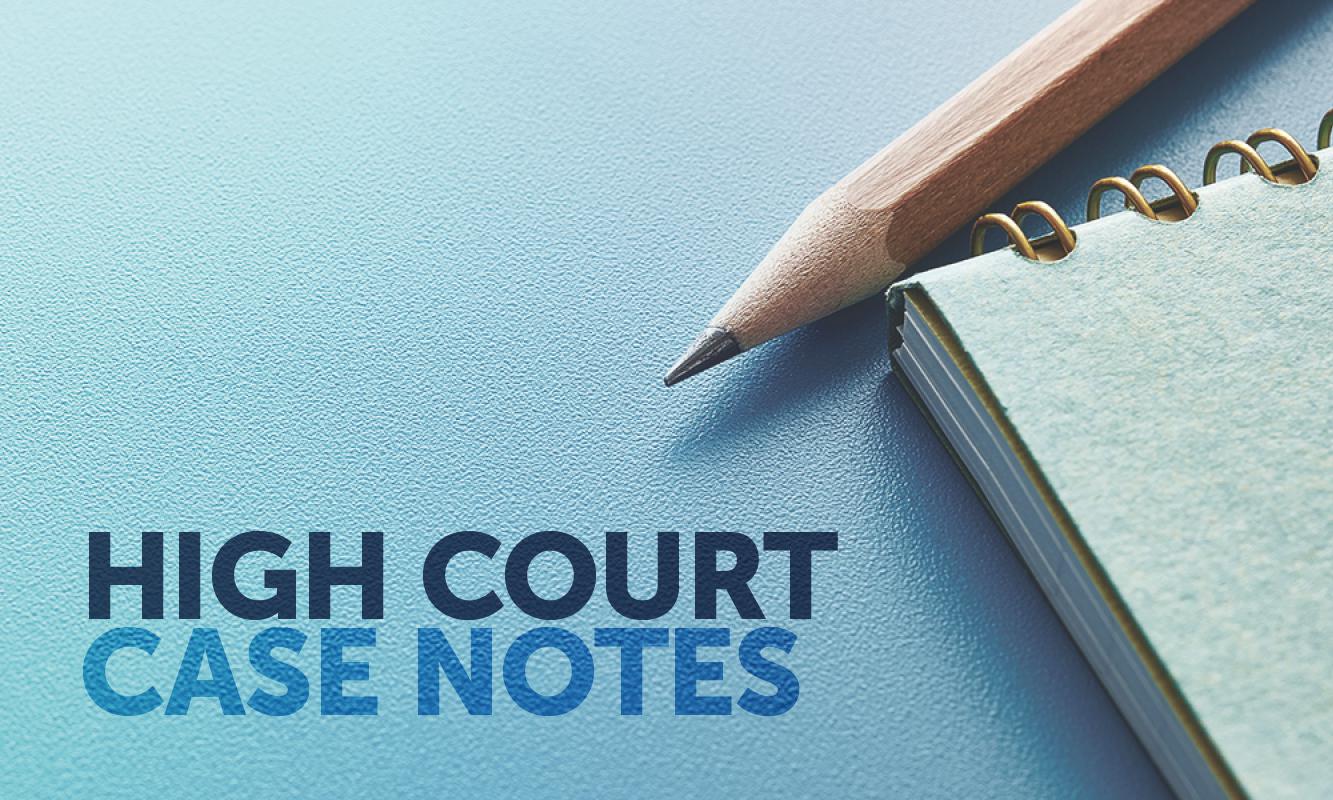…governmental and political matters
In Unions NSW & Ors v State of New South Wales [2023] HCA 4 (15 February 2023), the High Court was required to urgently consider – at least briefly – whether ss29(11) and 35 of the Electoral Funding Act 2018 (NSW) (EF Act) were invalid under the Constitution.
That is, whether they were invalid because they impermissibly burdened the implied freedom of political communication.
The EF Act (as set out in the Long Title) makes “provision for the disclosure, capping and prohibition of certain political donations and electoral expenditure for parliamentary and local government election campaigns”.
The plaintiffs are third-party campaigners (TPCs) and are registered, as such, under the EF Act for past New South Wales state elections and by-elections. The plaintiffs also intended to be registered as TPCs for future NSW elections.
The plaintiffs brought a special case before the High Court to argue that ss29(11) and 35 of the EF Act impermissibly burdened the implied freedom of political communication protected by the Constitution, and to seek a declaration of invalidity.
Section 29(11) of the EF Act caps a TPC’s donation to $20,000 (indexed for inflation). Section 35 of the EF Act created an offence, only for TPCs, for acting in concert with another person, or persons, to make a donation in excess of the cap.
Two weeks before the special case was heard by the High Court, the New South Wales Parliament repealed s35 of the EF Act. Following the repeal, the plaintiffs amended their claim to seek a declaration that s35, as it stood prior to the repeal, was invalid.
Later, after the High Court reserved its decision on the validity of s29(11), the State informed the court that it now conceded s29(11) was invalid. This was in light of a report delivered by the New South Wales Joint Standing Committee on Electoral Matters (JSCEM) entitled ‘Caps on third-party campaigners electoral expenditure in s29(11) and s35 of the Electoral Funding Act 2018’. The report recommended that the cap be raised to $198,750.
A majority of the High Court (Kiefel CJ, Gageler, Gordon, Gleeson and Jagot JJ) held that s29(11) was invalid because the State did not seek to justify it. The majority, in a joint judgment, noted at [30] and [31], that the State accepted that a cap imposed a direct burden on political communication, and that the State bore the “persuasive onus” of justifying the cap.
The majority observed, at [33], that it was the court’s task to determine the validity of a law and that such matters cannot be decided by agreement between the parties. But, the majority reasoned, “the point of determinative significance” is that the State no longer sought to justify the cap.
Steward J, in dissent, simply declined, at [91], to answer the question of whether s29(11) of the EF Act was valid. Steward J, at [86], grumbled that the hearing and determination of the special case “proceeded in this Court in unsatisfactory and unrealistic ways”. Steward J went on to complain that no evidence was brought before the court that the cap of $20,000 was unreasonable, and that none of the evidence or submissions put to JSCEM on that very issue had been made available to the court either.
Edelman J, at [63], considered it unnessary and inappropriate to answer the question of s29(11)’s invalidity for three reasons
- the weakness of the plaintiffs’ interest
- the lack of a substantial controversy
- the “prudential consideration” of not answering a constitutional question when there was no need to do so.
The High Court unanimously held that it was unnecessary to consider the validity of s35. Kiefel CJ et al, at [14], note that “the function of the Court is not the giving of legal answers or the declaration of legal principle – it is the resolution of a controversy about a legal right, duty or liability”. This is reflected in the constitutional requirement that a dispute involves a “matter” for the purposes of Ch III of the Constitution.
And, at [15], Kiefel CJ et al observe that standing to seek relief is “subsumed within the constitutional requirement of a ‘matter’ ”. In respect of a declaration of invalidity of a law for breach of the implied freedom of political communication, Kiefel CJ et al, at [22], note that a plaintiff must establish an interest other than one which any other ordinary member of the public may generally have in upholding the law.
Kiefel CJ et al considered, at [23], that the plaintiffs had sufficient interest prior to the repeal of s35 but lost that interest (and standing) after the section was repealed. Consequently, the court no longer has jurisdiction to hear and determine the plaintiffs’ claim in respect of the validity of s35 of the EF Act.
Dr Michelle Sharpe is a Victorian barrister practising in general commercial, real property, disciplinary and regulatory law, 03 9225 8722, email msharpe@vicbar.com.au. The full version of these judgments can be found at austlii.edu.au.














Share this article